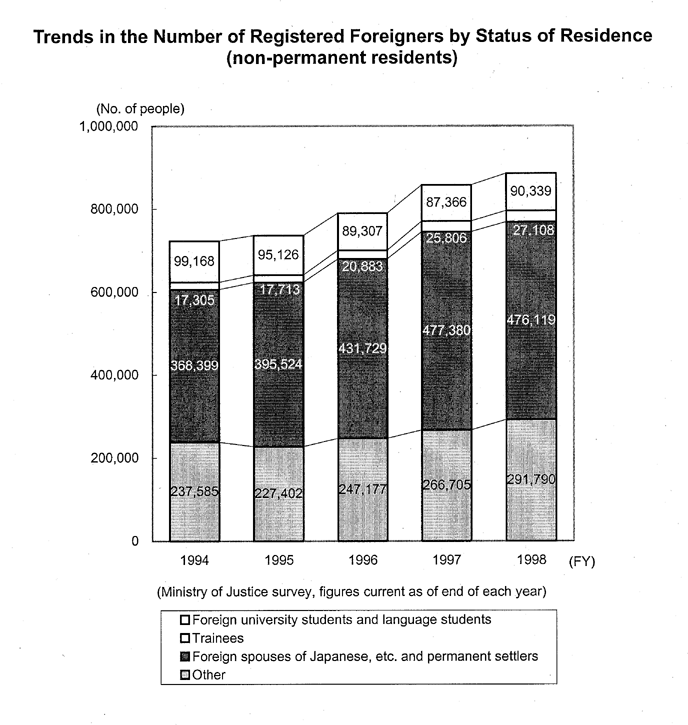| Home > Policy > White Paper, Notice, Announcement > White Paper > Japanese Government Policies in Education, Science, Sports and Culture1999 > Part2 Q56 | ||
A:A variety of opportunities to learn Japanese,such as the ones outlined below have beenestablished.
The number of foreigners residing in Japan is increasing every year,and as of FY1998 there were1,512,116foreign residents(1.2%of the total population).The breakdown of foreigners,excluding permanent residents is(1)90,339foreign uni-versity students and students attending Japanese language schools;(2)27,108trainees;(3)476,119foreign spouses of Japanese and second and third generation foreigners of Japanese de-scent;and(4)291,790other foreigners.
Foreign university students and languagestudents
These students receive special Japanese lan-guage education at their respective universities and Japanese language schools.
Trainees
These people come to Japan mainly from devel-oping countries and receive training in special technology,skills and knowledge at the public organization or company that is training them.They study the Japanese needed for them at the training public organization or company or at a contracted Japanese language school.
Foreign spouses of Japanese and secondand third generation foreigners of Japanesedescent
The majority of these people,who represent the largest group of foreign residents,are South Americans of Japanese descent from countries such as Brazil and Peru,returnees from extended stays in China and spouses of international mar-riages,and they live not only in major cities,but are scattered throughout the country,living in local communities.Recently,there have been support activities for Japanese language education,such as the establishment of Japanese language classes by local governments,international exchange or-ganizations and volunteer groups to support Japanese language education for foreigners liv-ing in local communities.It is necessary for foreigners living in local communities to have proficiency in Japanese so that they can communicate with Japanese people in everyday life and at work and adapt smoothly to community life.It is important to enhance opportunities for foreigners who want to study Japanese but have no opportunity to do so.

| Back to Top | MEXT HOME |